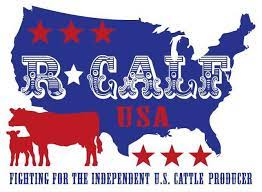Billings, Mont. – Today, R-CALF USA sent a letter to Agriculture Secretary Tom Vilsack stating it agreed with the National Cattlemen’s Beef Association’s (NCBA’s) November 12, 2021, call for the suspension of all imports of fresh beef from Brazil to the United States. R-CALF USA’s letter indicates it shares the concerns raised by the NCBA regarding Brazil’s repeated failures to provide timely notice regarding outbreaks of bovine spongiform encephalopathy (BSE or mad cow disease) in 2012, 2014, 2019, and more recently in 2021.
However, unlike the NCBA’s request for a suspension that only applies to fresh beef, R-CALF USA’s request is more expansive, seeking an immediate suspension of imports of all beef products, both fresh and pre-cooked, pending a United States investigation into Brazil’s food safety system and its veterinary diagnostic laboratory system.
The ranch group explains that the more expansive suspension is needed because beef-related heat processes are not capable of inactivating the BSE prion, and it is Brazil’s non-compliance with BSE reporting requirements that prompted the suspension request. R-CALF USA’s letter states “all imports of all beef potentially subject to BSE contamination must be suspended.”
The ranch group points out that Brazil’s trail of reporting violations reveals that government-led sanctions have not worked to change Brazil’s practices. It then suggests that Vilsack should help Congress pass the recently introduced mandatory country of origin labeling (MCOOL) for beef bill (S.2716), which it states will provide a market-based approach to enforcement that may be more effective in forcing Brazil into compliance.
Empowering consumers to choose if they wish to purchase products from countries such as Brazil that attempt to circumvent U.S. food safety expectations, or from countries that engage in the deforestation of the world’s rain forests will only be possible when S.2716 is enacted, the ranch group asserts.
The MCOOL bill will “empower consumers to exercise a market-based approach to ensuring that foreign beef is produced under the same high standards as required in the United States and expected by United States consumers,” the letter states.














